
 Michael Bourne at The Millions takes on the egalitarian myth behind teaching the craft of writing:
Michael Bourne at The Millions takes on the egalitarian myth behind teaching the craft of writing:
[T]he problem with craft talks isn’t what is being said from the podium. The problem is the unspoken message of the genre of the craft talk itself, which is that one becomes a successful writer by mastering a series of discrete elements of literary craft. You learn to keep your scenes short. You gain a deeper understanding of the role of voice in narrative fiction. You remember to always put a little bad in your good characters and a little good in your bad characters, and — poof! — one day you open your laptop and discover you have written A Visit from the Goon Squad.
This is a species of magical thinking. It is, of course, impossible to write a good book without a deep appreciation of how language and stories work, but it doesn’t follow that successful writers have simply worked at it harder than less successful ones or that their understanding of the craft of fiction is any more acute. What successful writers have that their less successful counterparts do not is talent. [emphasis mine]
This inconvenient fact offends our sensibilities because it is elitist and because it means that for all but a very lucky few of us, literary greatness remains beyond our grasp. A belief in the transformative properties of craft also undergirds an ever-growing industry of creative writing education that, one way or another, now pays the bills for most working poets and literary writers. For these reasons, we have constructed a culture of discussing creative writing designed to skirt the obvious. Because craft exists outside us and can be improved through effort, a focus on craft gives us a way to talk about bad writing that is less hurtful to the writer. The successful writer is saved from having to tell the less successful one, “Sorry, but you have no talent.” Instead, the successful writer can say, “You need to work on your craft.”
This analysis coheres neatly with what I have said about the “Authorhood of All Readers” myth and the dangers of pyramid scheme dynamics in a publishing culture wherein writing teachers teach writing to writers who will primarily go on to teach other writers (to be writing teachers).
To read the rest of Bourne’s fascinating piece, check it out here!

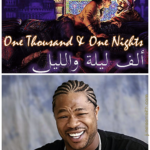
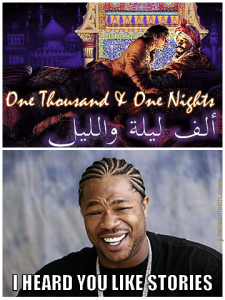
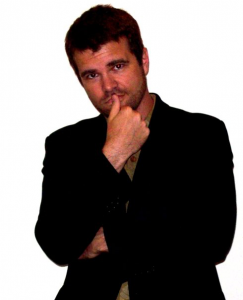 The Passive Voice blog
The Passive Voice blog 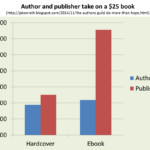
 The Authors Guild has, many times in the past, voiced that ebook royalties should be raised. So do something about it.
The Authors Guild has, many times in the past, voiced that ebook royalties should be raised. So do something about it.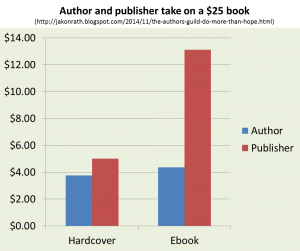
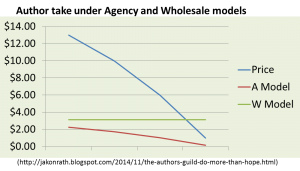
 I suppose I should say something now that Amazon and Hachette have ended their dispute by signing a multi-year contract. After all, I’ve had plenty to say about it up to this point.
I suppose I should say something now that Amazon and Hachette have ended their dispute by signing a multi-year contract. After all, I’ve had plenty to say about it up to this point.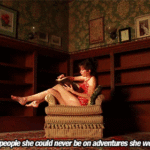
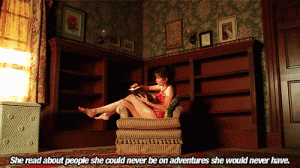
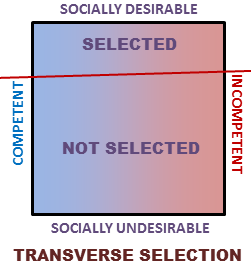


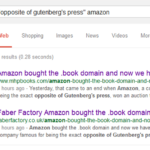
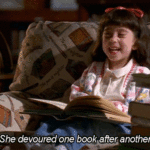
 You might have heard that the original Grimm fairy tales were far more grim than the cleaned-up versions with which we’ve become familiar.
You might have heard that the original Grimm fairy tales were far more grim than the cleaned-up versions with which we’ve become familiar.